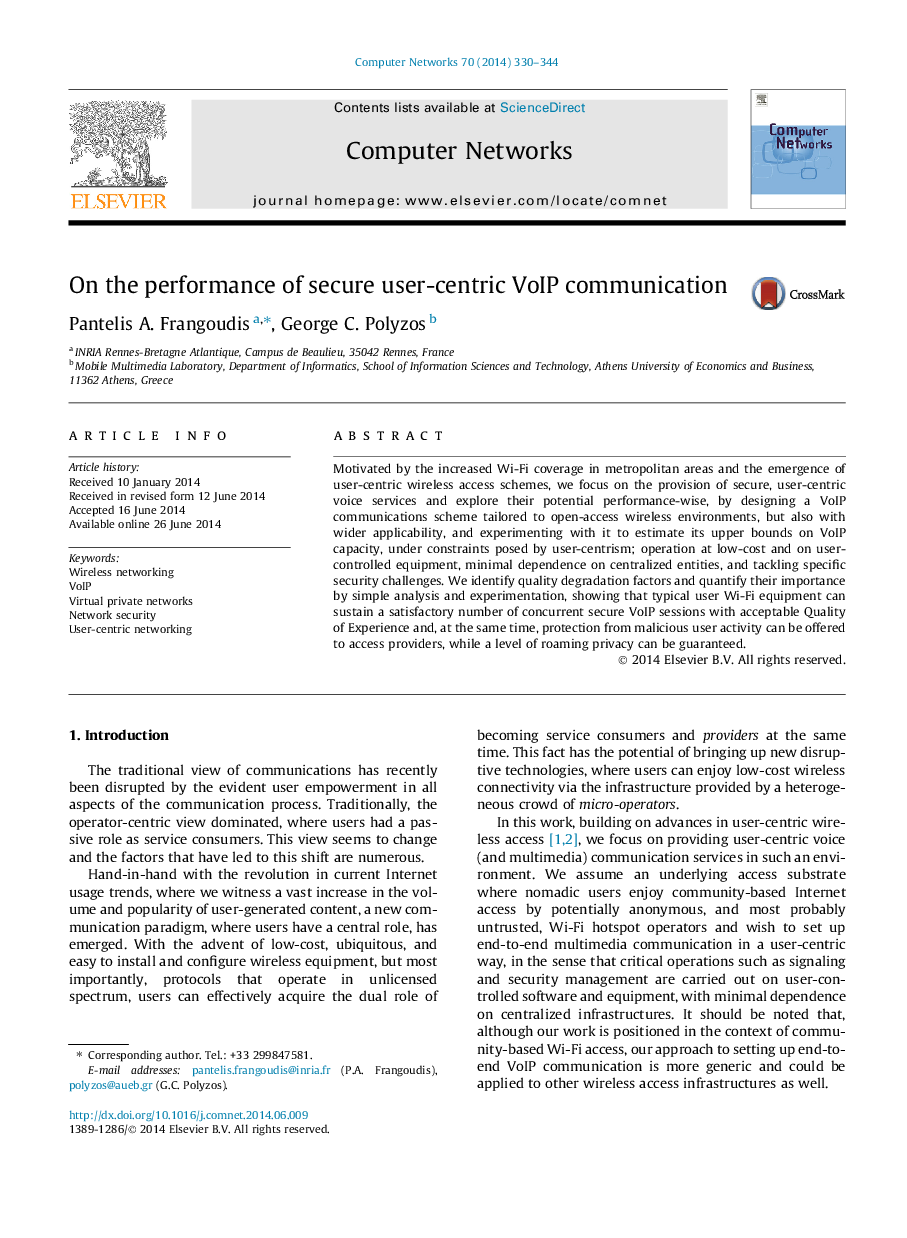| Article ID | Journal | Published Year | Pages | File Type |
|---|---|---|---|---|
| 6883074 | Computer Networks | 2014 | 15 Pages |
Abstract
Motivated by the increased Wi-Fi coverage in metropolitan areas and the emergence of user-centric wireless access schemes, we focus on the provision of secure, user-centric voice services and explore their potential performance-wise, by designing a VoIP communications scheme tailored to open-access wireless environments, but also with wider applicability, and experimenting with it to estimate its upper bounds on VoIP capacity, under constraints posed by user-centrism; operation at low-cost and on user-controlled equipment, minimal dependence on centralized entities, and tackling specific security challenges. We identify quality degradation factors and quantify their importance by simple analysis and experimentation, showing that typical user Wi-Fi equipment can sustain a satisfactory number of concurrent secure VoIP sessions with acceptable Quality of Experience and, at the same time, protection from malicious user activity can be offered to access providers, while a level of roaming privacy can be guaranteed.
Related Topics
Physical Sciences and Engineering
Computer Science
Computer Networks and Communications
Authors
Pantelis A. Frangoudis, George C. Polyzos,
